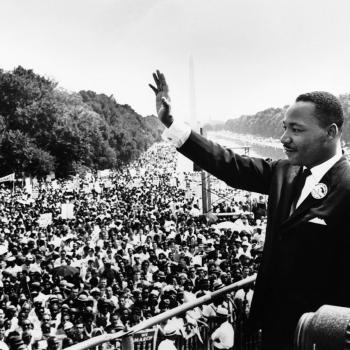 At my multi-ethnic church this Sunday, a white man shared constructively and critically about how many white people speak of racial fatigue: many white people are tired of hearing about racism. For them, the conversation is running on empty.
At my multi-ethnic church this Sunday, a white man shared constructively and critically about how many white people speak of racial fatigue: many white people are tired of hearing about racism. For them, the conversation is running on empty.
It is one thing to be tired of hearing about it. It is another thing to be tired of living it. Some of my African American friends talk about the fatigue of having to live in a racialized world where the color of their skin often works against them rather than for them. It affects where they live, go to school, work, and beyond.
We don’t live in a post-racialized world. The more we think we live in a post-racialized world the more we reinforce it and intensify others’ racial fatigue who live it.
Even so, many white people experience racial fatigue. One white Christian friend of mine who struggled greatly with such reflections as this post reacted strongly, in part because he has experienced reverse racism. He has not healed over it. Until he begins to experience God’s sustaining and healing grace for his reverse racism encounters, he will not empathize with what I am writing about here. So, how do we proceed?
I need to identify with him in his pain, just as I am called to identify with my African American brothers and sisters in their pain. Their identification with me also helps me find comfort through Christ in my sufferings so that I may gain strength and become energized in my suffering to live anew the gospel of reconciliation. As another white brother shared with me a few weeks ago after the service at Irvington Covenant Church, he finds comfort and hope in Christ in the midst of his painful and sorrowful life which he cannot escape by encountering God in solidarity with our African American friends at church who experience daily the fatigue of living in a racialized society.
Even though the atoning sufferings of Christ are not to be equated with other forms of suffering, his sufferings and his healing and comfort bear relevance for this conversation on racial suffering and other kinds of grief. As the church, we are called to identify with one another in our sufferings and comfort one another with the comfort we have received from God through Christ. As Paul writes,
Blessed be the God and Father of our Lord Jesus Christ, the Father of mercies and God of all comfort, who comforts us in all our affliction, so that we may be able to comfort those who are in any affliction, with the comfort with which we ourselves are comforted by God. For as we share abundantly in Christ’s sufferings, so through Christ we share abundantly in comfort too. If we are afflicted, it is for your comfort and salvation; and if we are comforted, it is for your comfort, which you experience when you patiently endure the same sufferings that we suffer. Our hope for you is unshaken, for we know that as you share in our sufferings, you will also share in our comfort. (2 Corinthians 1:3-7)
Only as I experience God’s identification with me and comfort in my suffering am I able to reach out and comfort others in their sufferings. Such experiences fill my spiritual and emotional tank and reenergize me. The church is called to be a community that shares in people’s sufferings and comforts them in their afflictions inside the church and beyond. As Dietrich Bonhoeffer argued, the church is called to be a community for others, just as Jesus is the man for others. Eberhard Bethge in his foreword to Dietrich Bonhoeffer’s Letters and Papers from Prison claims that Bonhoeffer’s Jesus as “the man for others”
…means the realization of a fundamental difference between the religious God who is all-powerful, and the Christian God who suffers and is powerless; between the image of a religious God who keeps mankind in despotic tutelage, and that of a Christian God who exposes and judges men’s craving for power. It means the realization of the difference between religious institutions that keep men from growing up to think and decide for themselves, and a society that resolves in love and freedom all desire to exert, or to live under, forcible control. It means the realization of the difference between going forward together and suffering together (Eberhard Bethge, “Foreword,” in Dietrich Bonhoeffer, Letters and Papers from Prison, rev. ed. (New York: The Macmillan Company, 1967), pp. xiv-xv).
I know that Bonhoeffer was moved by the gospel music and witness of the African American church in Harlem. Far from experiencing racial fatigue, Bonhoeffer was energized to enter into suffering. No doubt, the inspiration he received in Harlem moved and inspired him in his return to Germany as he threw himself into the struggle against Hitler and the Nazi oppression of the Jewish people and as Bonhoeffer claimed in prison that it is only the suffering God in Christ who can help us.
The white brother who shared Sunday about what he is learning through our church’s diversity initiative titled Intergroup Dialogue on Race and Reconciliation said that he has learned so much by listening to the painful stories of people of diverse ethnicities. I learned so much from his closing words: we must not only laugh together; we must also grieve together in view of the ongoing racialized state of our society. Such solidarity in grief will fill our tank and move us beyond racial fatigue whereby we become a reconciling church energized by the suffering power of God’s reconciling love.

















